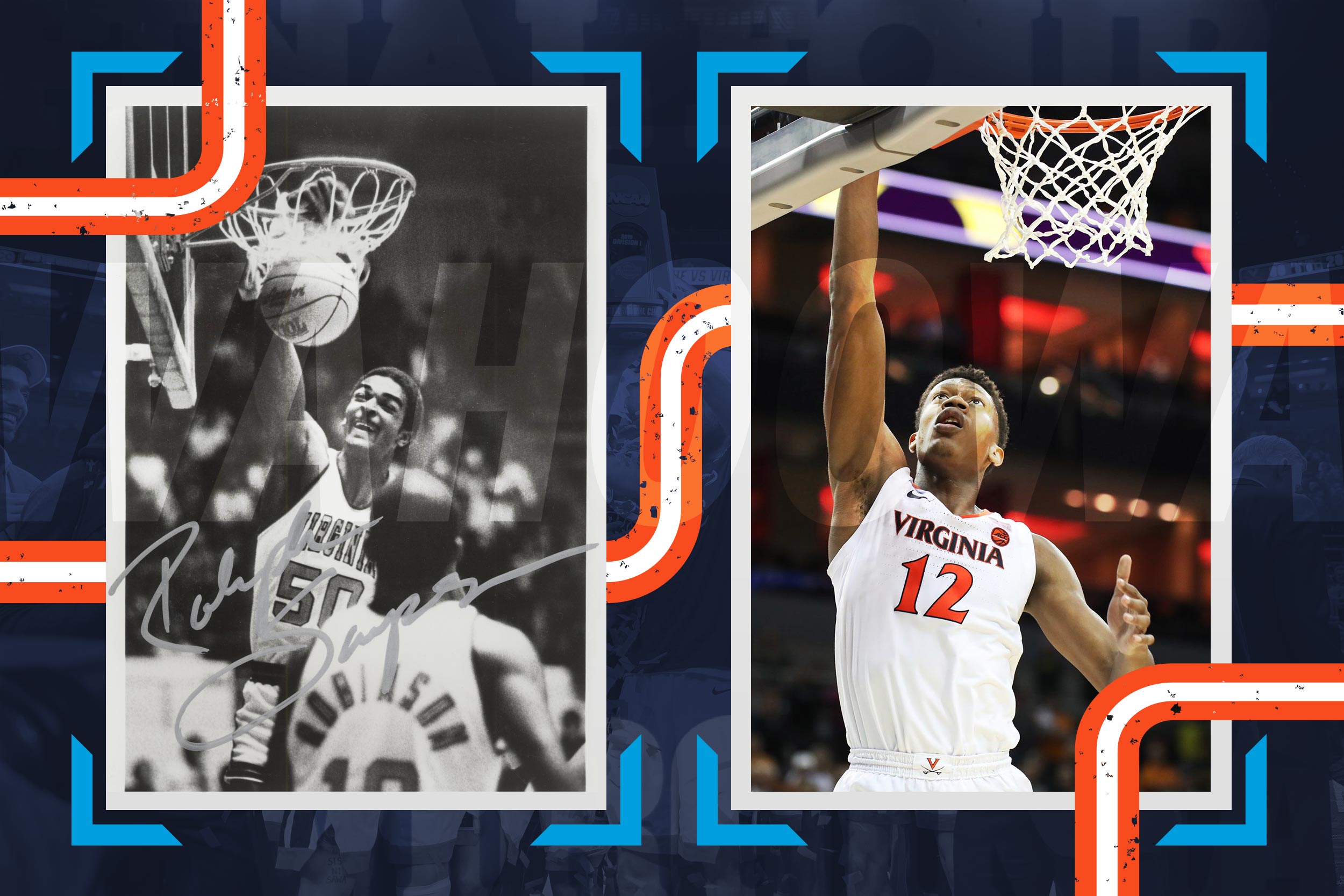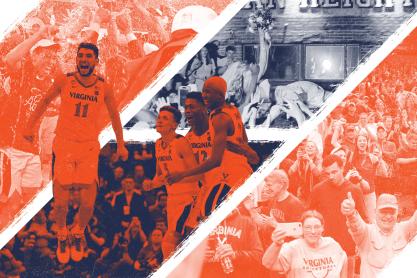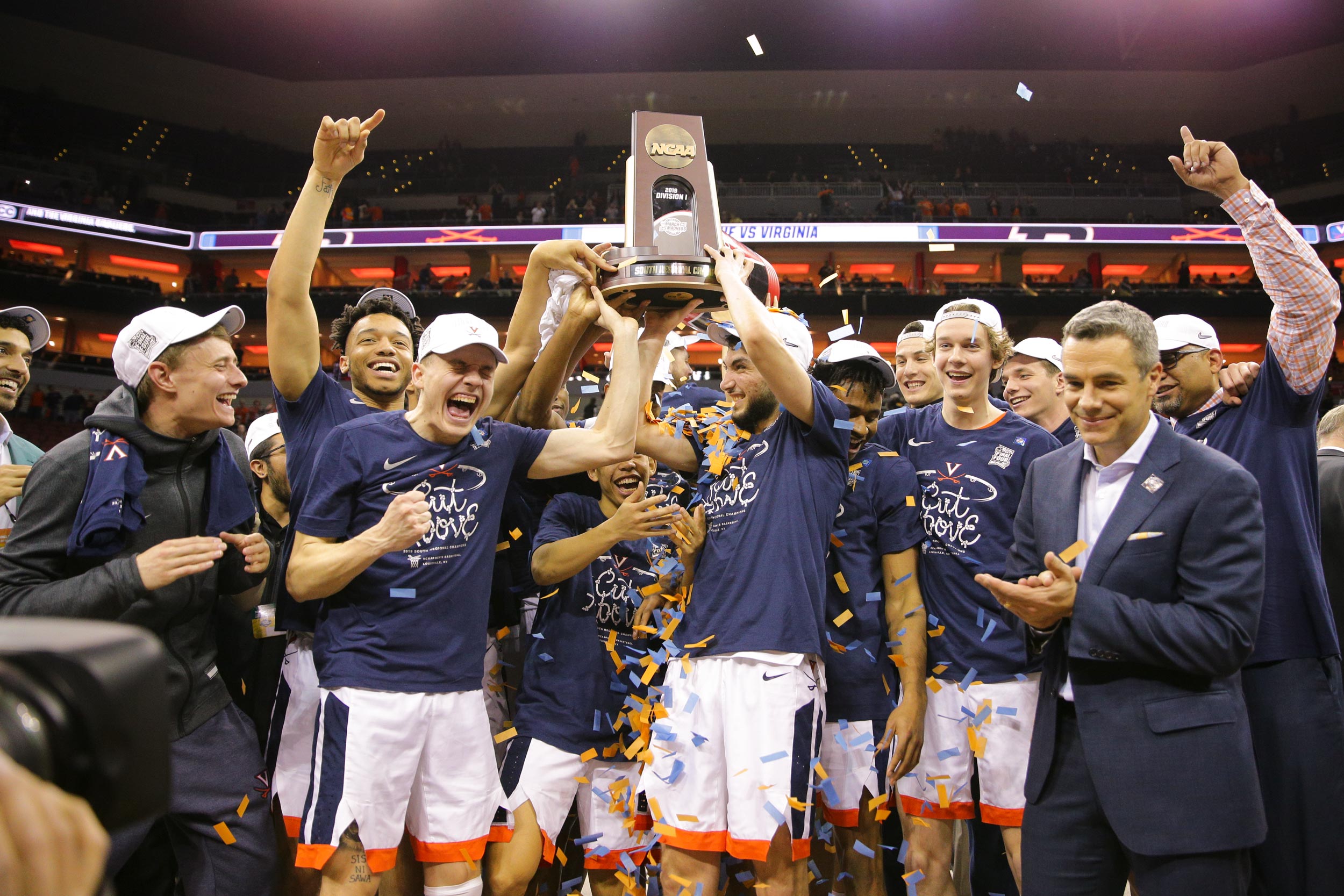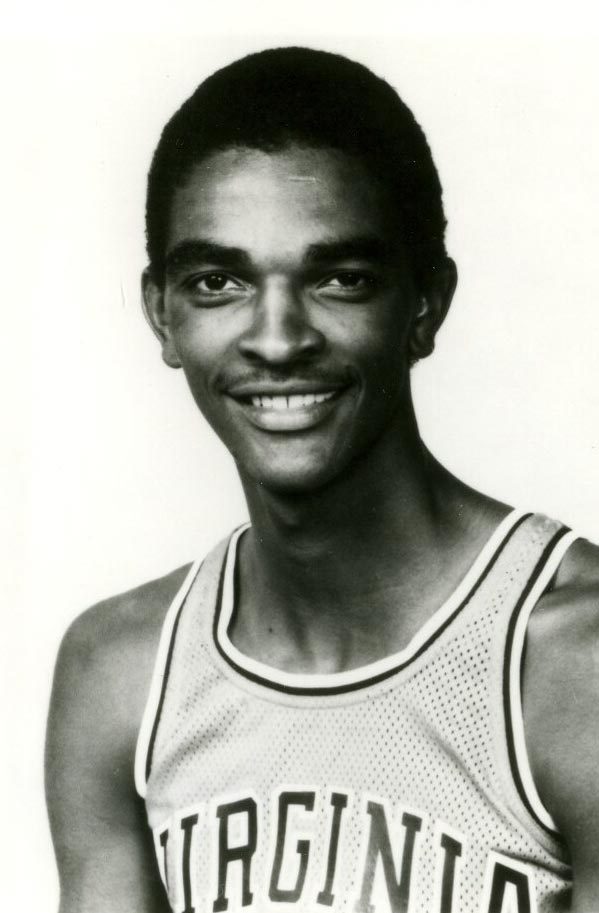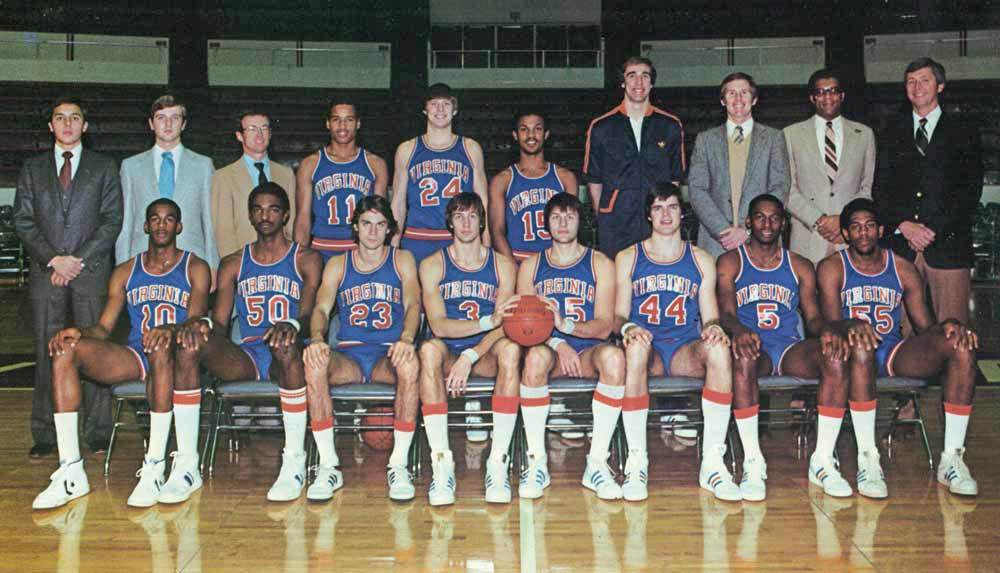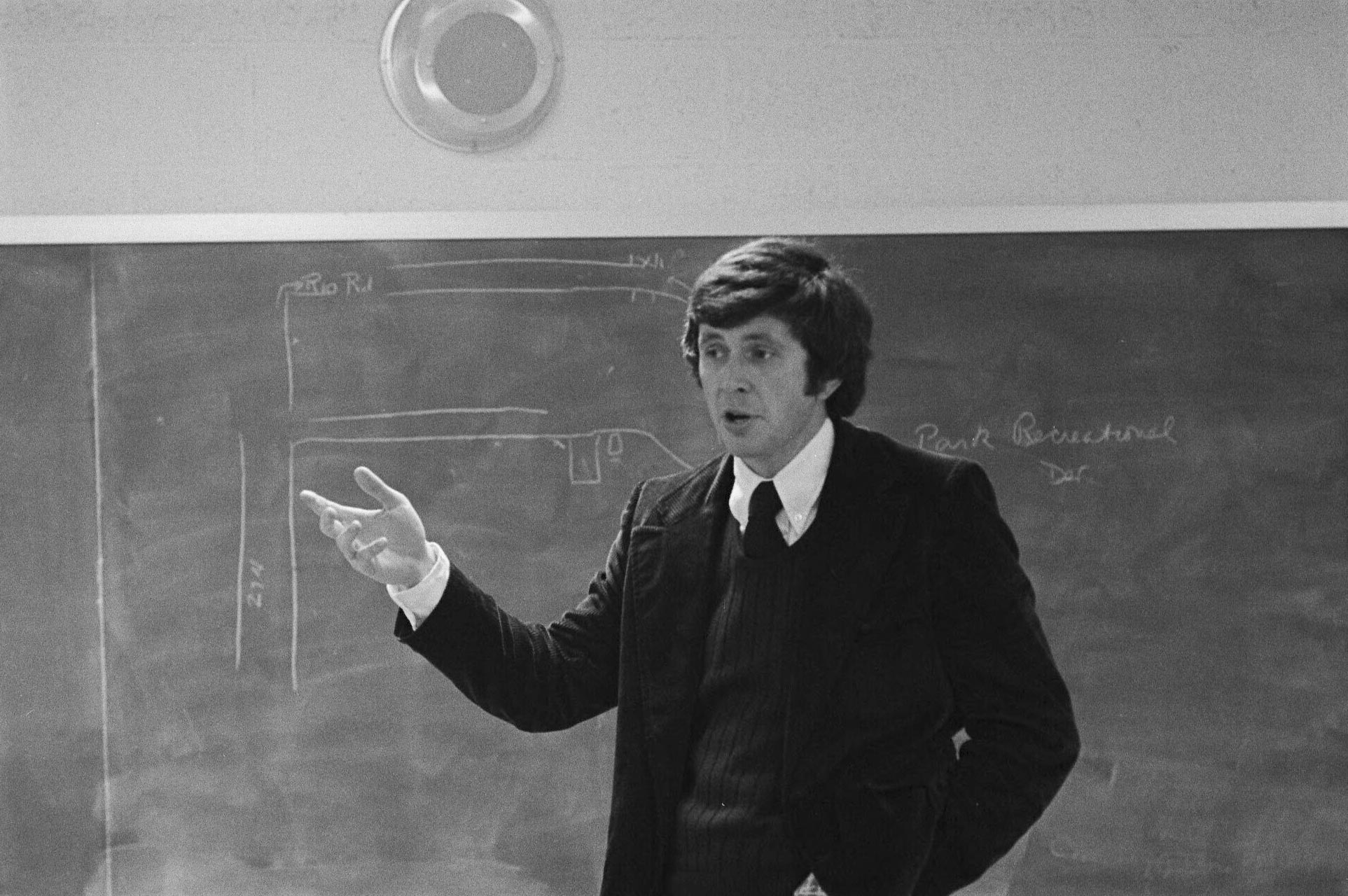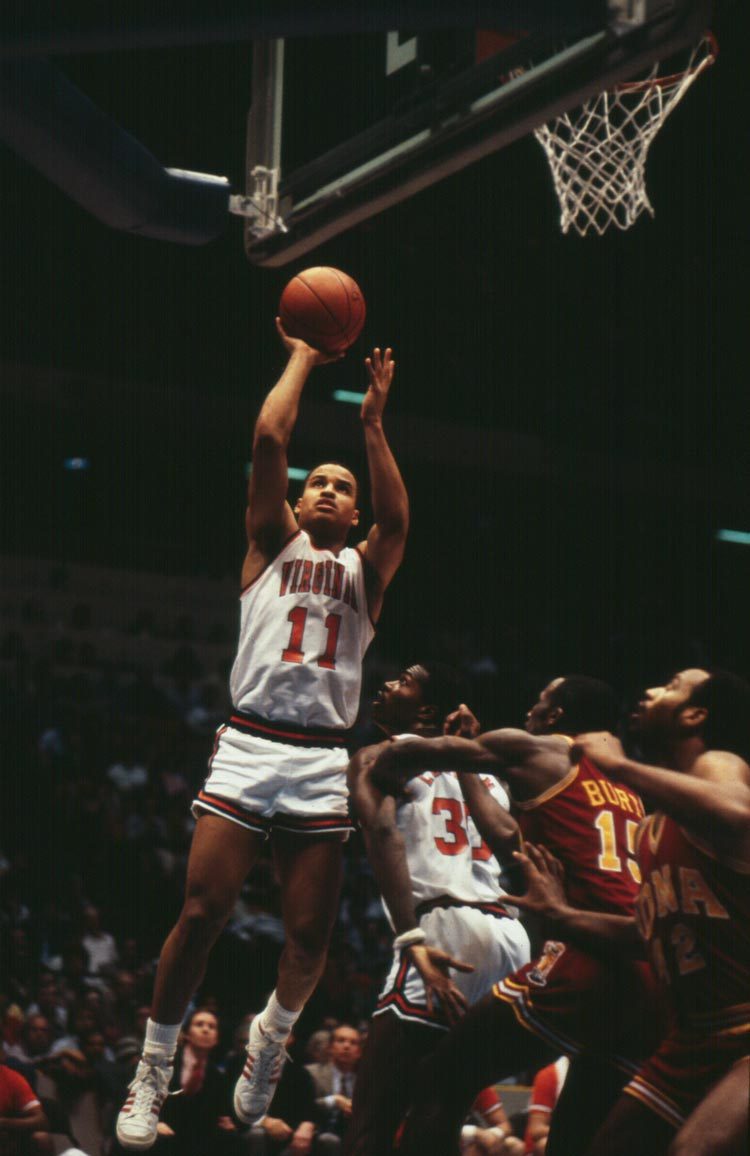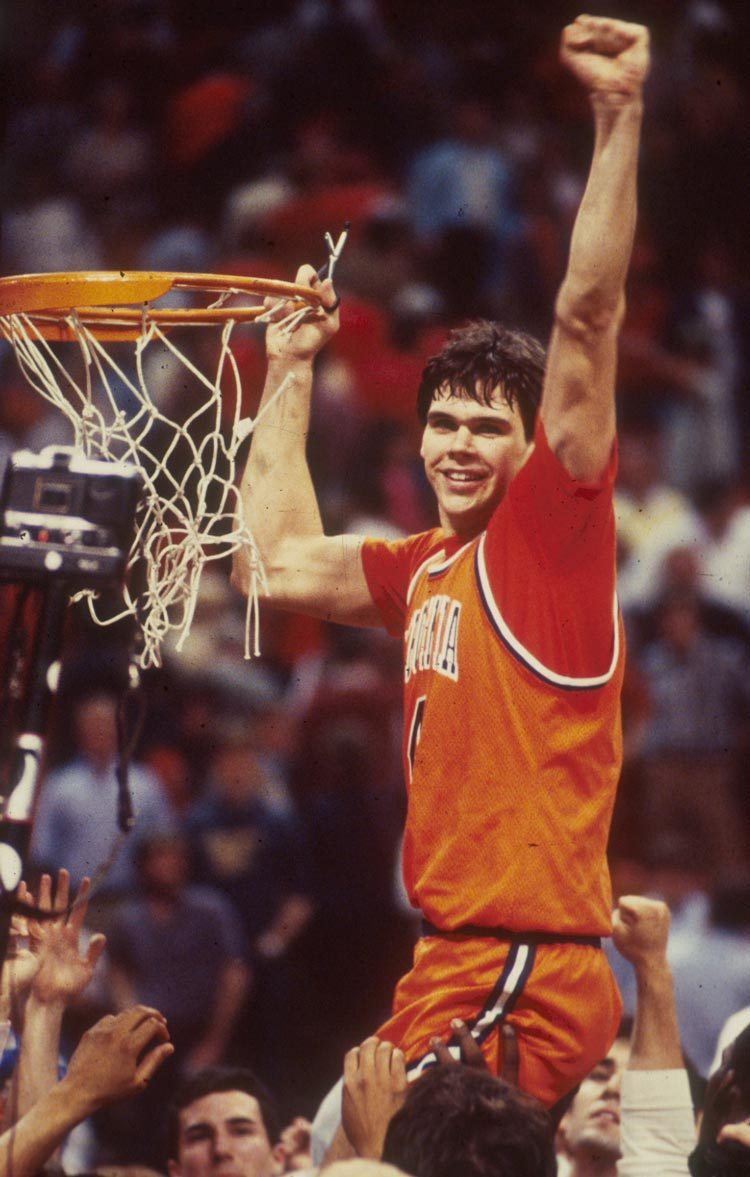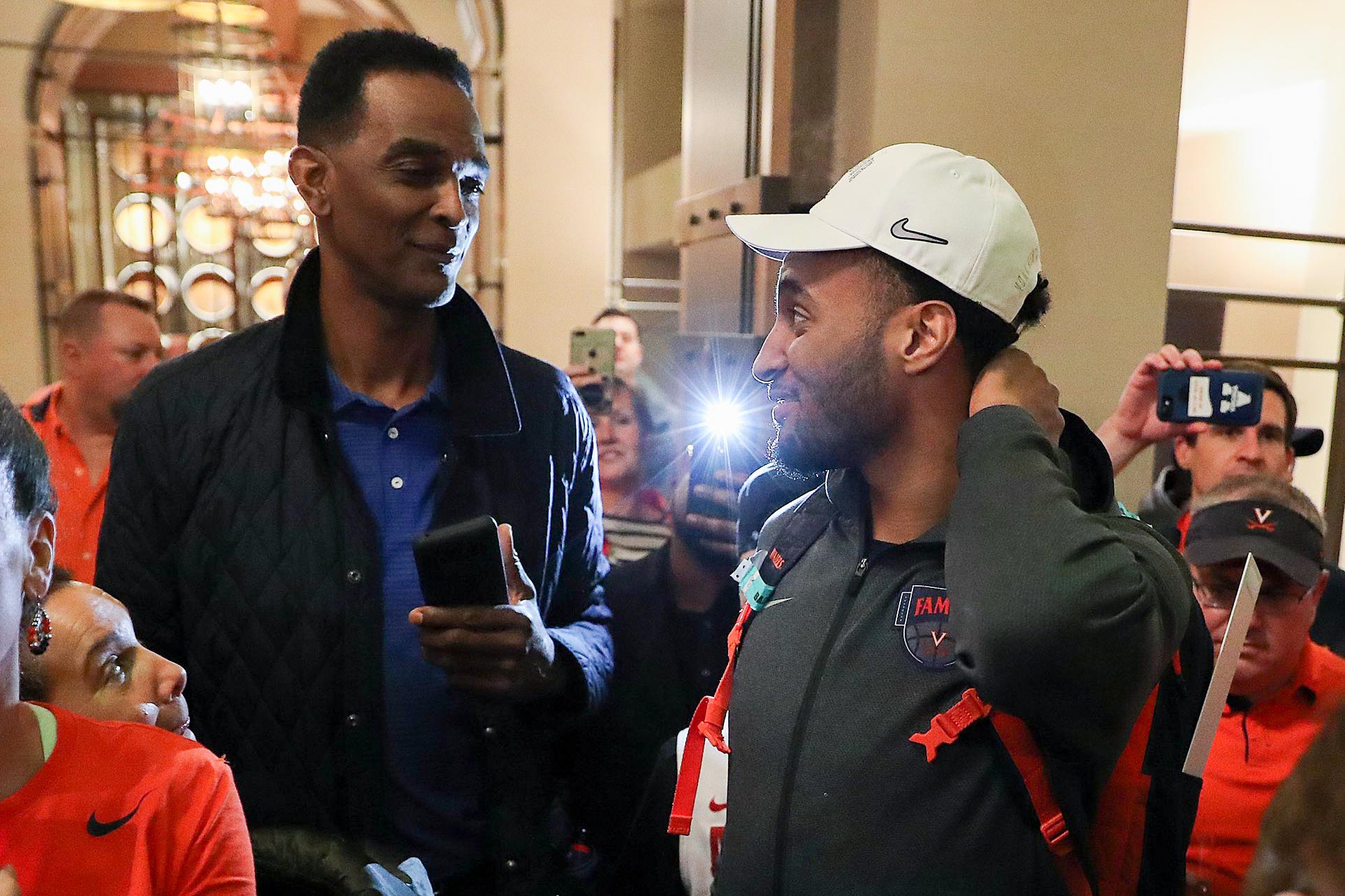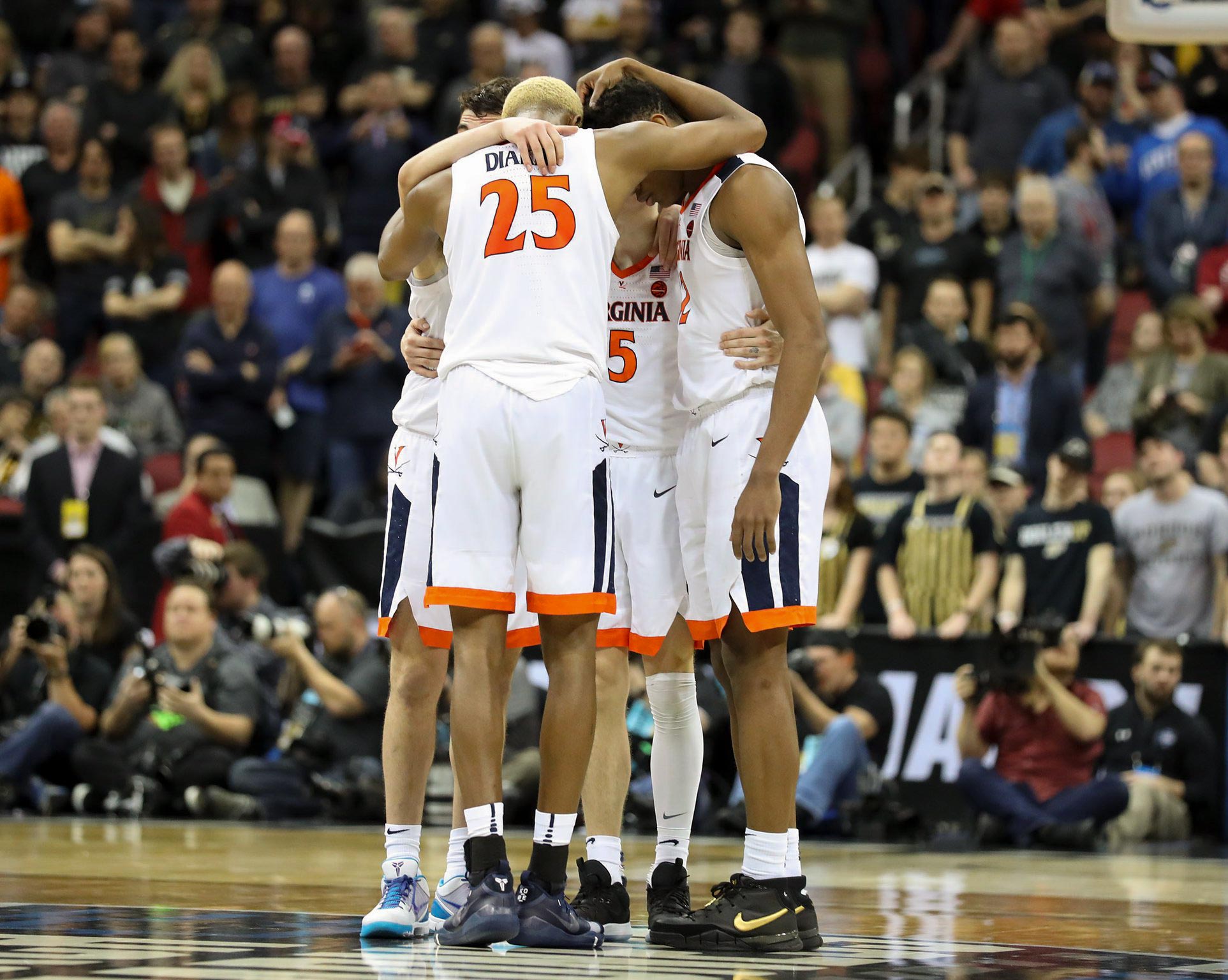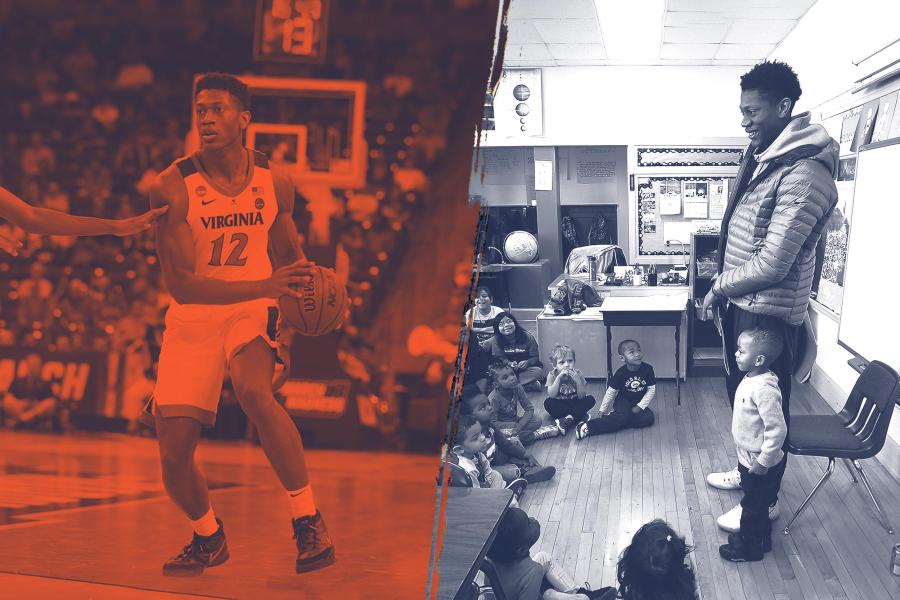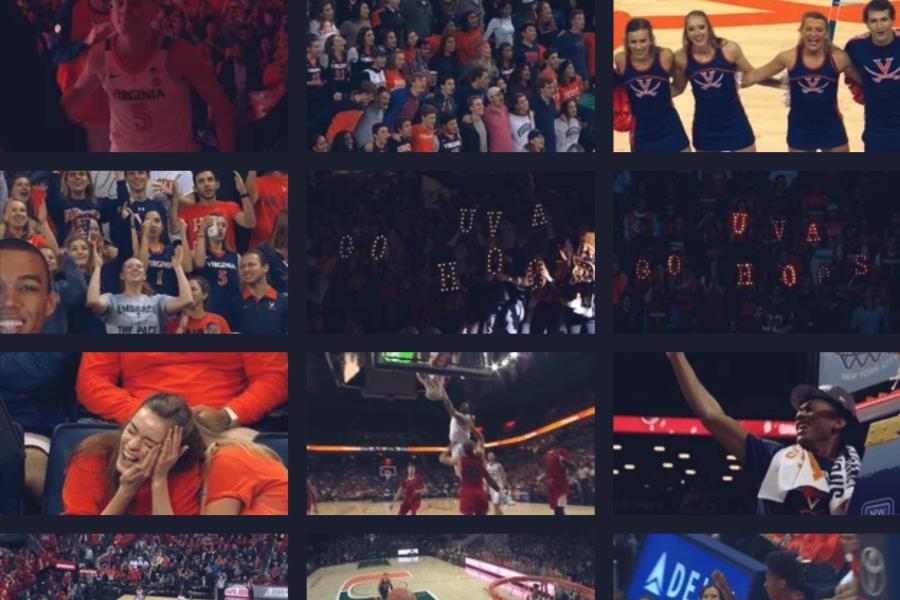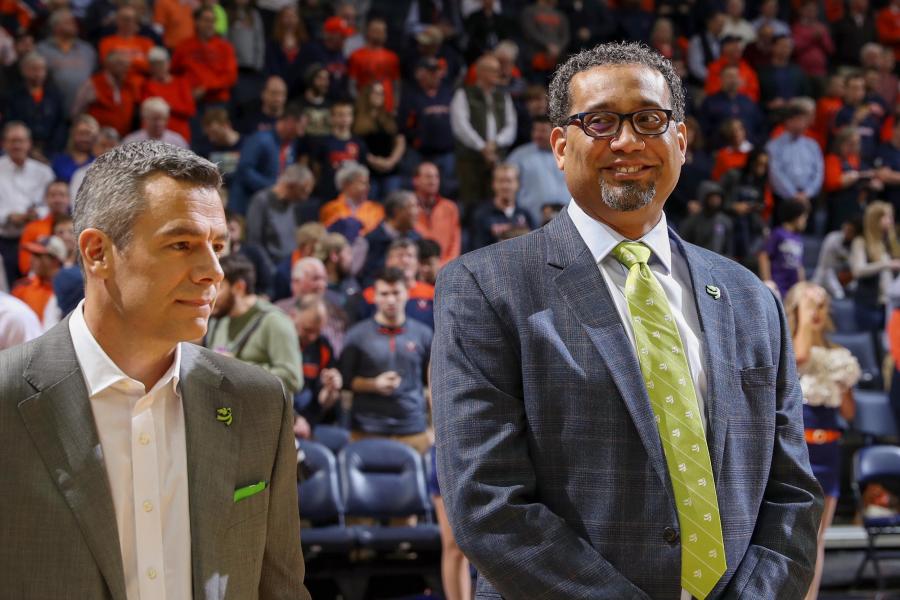After all, Virginia had never made it to a Final Four in its history before then.
“The fiber of UVA basketball started with the likes of Barry Parkhill and Wally Walker,” said Sampson, referring to the Hoos stars of the ’70s, “and we came in and took it to a different level.”
Surprisingly, Sampson never played in another Final Four. It wouldn’t be until two seasons later – and without Sampson, who had graduated by then – that UVA returned to college basketball’s biggest stage.
The Road to Seattle
Holland believes the groundwork for the 1984 run may have been laid the season before when the Hoos lost to Chaminade University of Honolulu – an NAIA member (not the NCAA) – in Honolulu on Dec. 23, 1982.
Looking back, Holland said the defeat – considered one of the biggest upsets in sports history – may have sparked something in his team, the same way the UMBC loss did for this year’s UVA squad.
“I do think teams tend to respond to things that have happened, both good and bad,” he said. “You want to right the wrong if you have that opportunity, and luckily we had that opportunity.”
The rewards wouldn’t come until the following season, though.
And they wouldn’t come easy.
Without Sampson – who, by then, was on his way to a Rookie of the Year season for the NBA’s Houston Rockets – UVA no longer possessed a superstar. And it showed.
The squad, led by guards Stokes and Rick Carlisle and first-year center Olden Polynice, went just 6-8 in ACC play. When the ’Hoos received a bid to the NCAA Tournament, many commentators complained that they didn’t deserve it.
“It was tough hearing that,” Polynice said, “but once we got in, we were like, ‘Hey, let’s make the most of it and prove people wrong.’ That was basically the mission.”
After surviving a nail-biter against Iona College in the first round, UVA found its groove.
“We beat Joe Kleine and Arkansas, who we weren’t supposed to beat,” said Polynice, referring to the Razorbacks’ 7-footer, a future NBA player. “And it just kept snowballing. It was amazing. None of the games we were supposed to win. We weren’t supposed to beat anybody.”
Upset wins over Syracuse University and Indiana University followed, sending Virginia to the Final Four in Seattle.
“We were always the underdog, in each of those games,” said UVA forward Jimmy Miller, now a color commentator on UVA basketball radio broadcasts. “You play freer, looser. We really enjoyed the experience of going through that. I think that helped us.”
Miller was named MVP of the East Regional.
“We had some good players,” said Miller. “We were a good team. We weren’t a great team – but we played together, and I think that is what the tournament is about.”
The Hoos also had some good coaches. Holland’s staff included future head coaches Dave Odom, Jim Larranaga, Seth Greenberg and Jeff Jones.
Polynice said the ’84 ’Hoos oozed resilience.
“If you look at that team, we all were underdogs,” Polynice said. “Ricky Stokes was diminutive. Rick Carlisle wasn’t fast enough. Othell can’t score. We all had knocks. We were a bunch of guys who people kept doubting and we just kept finding a way to put it together one game at a time.”
Meanwhile, Hall-of-Fame UVA sports information director Rich Murray, now retired, said the atmosphere in and around Charlottesville was electric.
“There was a level of enthusiasm and excitement that built as that team progressed,” he said. “There was question as to whether or not the team would get in the tournament, so that run really was unexpected.”
“It was an exciting team to watch, even after Ralph left the building,” said UVA alumna Jody Turner, who met her husband, Bryan, in the Pep Band. “During the 1980s, there were more Pep Band members who wanted to be in the basketball band than we were allowed, so we had a lottery system of our own to determine who from each [instrumental] section would go to which home and tournament games.”
Luckily, the Turners got to go to Seattle.
“It’s pretty amazing to think of the future NBA stars we saw during that Final Four, starting with [UVA’s] Rick Carlisle, [Houston’s] Hakeem Olajuwon, Patrick Ewing and Reggie Williams [both of Georgetown],” Jody Turner said.
In Seattle, UVA finally met its match: a very big, very athletic, very skilled Olajuwon-led University of Houston team. The Cavaliers gave the Cougars all they wanted before finally succumbing in overtime, 49-47.
“For four games, Virginia’s bid for an NCAA championship was straight out of a fairy tale, and then somebody went and changed the ending,” read the first paragraph in Doughty’s game story.
Holland, for one, still takes great satisfaction in knowing that nobody ever thought they would make it that far.
“That team was a team that sort of snuck up on everybody and did their job when the time came,” Holland said. “Quite honestly, we could have played at least one more round of the Final Four, but we had some tough breaks.
“They were a great group of kids who were not expected to even be there, and it went right down to the wire with Houston, who had some very good players on that team. They were just bigger and stronger than us at some of the key positions, which made it tougher on us.
“But the players went out there and had a chance at it. There was a tough call right near the end of that overtime. But we were proud of the kids and the way they played. The fact that they even got there surprised a lot of people, much less had a chance to win.”
The Road to Minneapolis
Now 35 years later, Holland, Sampson and a small army of former ’Hoos can’t wait until Saturday.
Sampson will be on hand in Minneapolis. Making the experience even more memorable is the fact that Braxton Key is a key contributor on this year’s team.
“He’s called me ‘Uncle Ralph’ since he was little,” Sampson said, “but he’s actually my mother’s brother’s grandson.
“What a way for history to be around our family. To have a relative of mine be there for the Final Four … It’s very surreal and special.”
Sampson will also be rooting hard for Bennett, with whom he has grown close over the last several years.
“Tony Bennett is a very special man,” Sampson said. “I always tell him that I’m glad he’s the coach here and that I’m honored to be around him. What he has done in terms of changing the culture of the program is special, and this will catapult it into another stratosphere. I’m really excited about that.”
Lamp believes everything the ’Hoos have been through will be their biggest advantage.
“I think all of that kind of bonds you,” he said. “If you can come through that adversity, you’ll be stronger for it. That’s what you need in the Final Four, because there will be so many ups and downs in the course of a game. Just to have that resiliency and trust and camaraderie with your teammates is huge.”
When the Hoos made the 1984 Final Four, Murray was in his first year as a UVA SID.
“It’s a tremendous, wonderful experience,” he said. “You certainly hope that you’re going to have the opportunity to be with a team that gets back there, but it didn’t happen for 35 years for UVA. So you really need to soak everything in as best you can. I would certainly counsel somebody to really take advantage and soak it in and enjoy that moment, because you just don’t know if you’ll have that experience again.”
Holland said he wasn’t the least bit surprised by the way the final 5.9 seconds unfolded in Louisville last Saturday.
“I think,” he said, “we all thought they were going to find some way to win.”
Holland laughed when asked if he had any advice for the 2019 ’Hoos.
“I think they’re on their own at this stage,” he said. “They certainly don’t need an old crotchety guy like myself telling them what to do. They are a fun group to watch. What they do in terms of shots they make – I’ve been amazed. And I’ve been excited about them getting the monkey off their back in terms of making the Final Four.
“These kids have worked so hard and have had some tough breaks, but now being able to say that they’re part of a Final Four is something special. They’ve earned it.”
